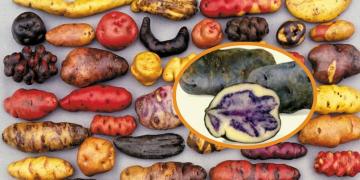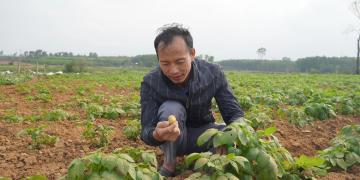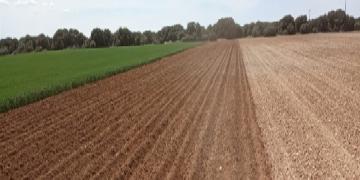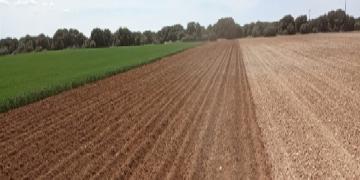Spain: Mildew threatens potato plantations in Sa Pobla
The fungus that causes the disease proliferates due to the high humidity during this month of March.
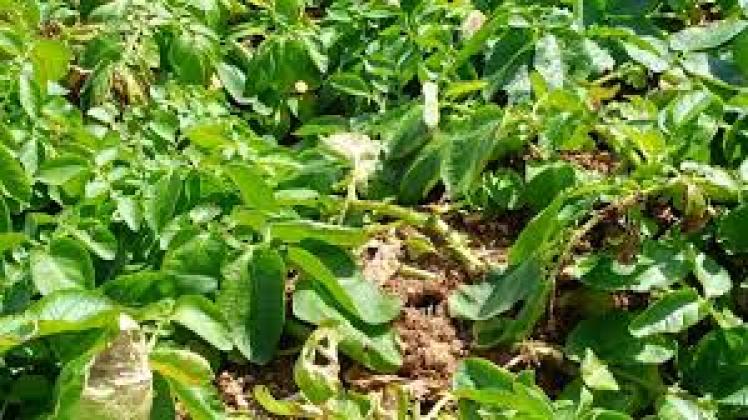
On some farms in Sa Pobla, potato plants can be seen affected by downy mildew (also known as late blight). The rains this March caused downy mildew, a disease caused by the fungus Phytophthora infestans, to proliferate especially when temperatures range between 10°C and 27°C and humidity exceeded 90% for two consecutive days. "The ’hot’ weather of these days, along with the rise and fall in temperature, stimulates the fungus," the farmers say, highlighting the water in suspended mud and the humidity, primarily.
Last year at this time, the weather was different; mildew didn’t attack in this way because there was virtually no rain in the first few months of the year. The origin of the disease is usually found in contaminated tubers left in the field from previous seasons, or in the germination of winter spores (oospores). These problematic tubers contain fungal mycelia that, under certain climatic conditions, produce sporangia, or spore-storing structures. Mildew is recognized by the appearance of irregularly shaped spots on the leaves, initially green and then dark, often with a yellowish halo. The undersides of the leaves are notable for the presence of white fuzz caused by the fungal fruiting.
Some farmers complain about the current limitations they have in treating potato fields with herbicides. "We can’t buy some of the products we need to combat mildew, which was previously a good thing for us," and this puts "a successful harvest at risk if there’s a lot of fungus," says Joan Serra. Furthermore, they emphasize, "the prices for treating mildew are sky-high; working in the fields is no longer sustainable," says Miquel Crespí.
Furthermore, they claim that the current product isn’t as effective as the one before. Then, they conclude, "products grown with a lot of herbicides are coming from abroad and can be purchased cheaply for consumption. The world is upside down. They want to exterminate us." Downy mildew in potatoes is undoubtedly one of the main enemies of this crop, generating significant economic losses each season. Furthermore, the fungus that causes this disease doesn’t only attack this tuber, but also other crops, so the impacts can be very significant if its spread is not stopped in time.
Fewer potato crops
Some farmers explain that they have planted fewer or no potatoes this year. This is the case of Joan Socies, who this year has opted to expand his peanut cultivation, which was practically in danger of extinction. Other fields that can be seen with potato farms are cultivated by local exporters, who plant and care for the farms of retired farmers or those who simply don’t want to plant because it’s not profitable.
Thus, the idiosyncrasy of potato cultivation is changing in this town known as the largest exporter of this tuber to Europe, as well as a supplier to restaurants and hotels on the nearby coast, such as Port d’Alcúdia or Can Picafort.
The Sa Pobla potato is an emblematic agricultural product of the Mallorcan town and is recognized locally and internationally. It is distinguished by its flavor and texture. The export season is coming soon, during which the Sa Pobla potato travels to conquer the palates of European countries. In the town, it is used in various dishes, primarily for the typical fried pork and, now at Easter, for fried lamb. The town also holds a fair dedicated to this tuber . The history of the potato in the town was also marked by the history of the Pobla Agricultural Cooperative.
Fuente:

